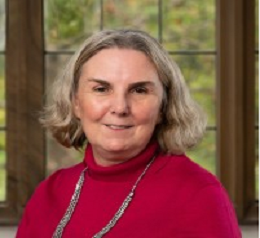INTERNATIONAL WOMEN'S FORUM
THEME: "Breaking Barriers, Shaping the Future of Women"
 17-18 Mar 2025
17-18 Mar 2025  Amsterdam, Netherlands
Amsterdam, Netherlands THEME: "Breaking Barriers, Shaping the Future of Women"
 17-18 Mar 2025
17-18 Mar 2025  Amsterdam, Netherlands
Amsterdam, Netherlands 
University of Melbourne, Australia
Title: Crossing borders through culturally informed intersectionality: Reflecting on being an Indigenous woman living with disability in higher education
Sheelagh Daniels-Mayes is a Gomeroi woman who has low vision. She is Lecturer in
Indigenous Studies, and Deputy Associate Dean, Diversity and Inclusion –
Disability in the Faculty of Arts at the University of Melbourne. Her research
expertise includes sociology of racism, Critical Indigenous Studies, Critical
Disability Studies and intersectionality.
Sheelagh is the Chief Investigator of an
ARC Discovery Indigenous, 'Improving Life Outcomes for Indigenous People Living
with a Disability: Lessons from Australia's Universities' (The BlakAbility Project).
This is a multidisciplinary team investigating the experiences of Indigenous
staff and students with disability. She is developing a framework referred to
as BlakAbility.
In this presentation I reflect upon my
experiences of being an Australian Indigenous, disabled and, yes, a woman, who leads
a major research project in higher education. More specifically, I will speak
of how I navigate the university landscape that largely remains under the
leadership of men, the able-bodied and those who are affiliated with the
dominant culture. While Indigenous women are increasingly achieving leadership
roles in higher education, they are hindered in their undertakings by barriers
such as racism and sexism, and for me and many others, ableism. This complex entanglement
of identities too often results in multiple sites of exclusion, disempowerment
and invisibility. However, such identities can also be sites of opportunity,
strength and resistance.
For generations colonisation has enacted a
process of disempowerment for Indigenous women. It is essential to understand
that my Aboriginality comes first and impacts all that I do. A culturally
responsive model of leadership goes beyond being a position or a person.
Instead, it involves responsibility and respect in both directions—from the
younger to the older and the older to the younger. It is about deep listening,
recognizing difference and lived experience, and working from where people are
at—not where you would want them to be. It is, undoubtedly, also a gendered
practice. Culture also frames disability as a strength and not a deficit. Culture
is a way of reclaiming power; about disrupting racialized deficit narratives; resistance
and, pushing back against the colonial load. Finally, using the framework of
intersectionality reveals both the barriers and opportunities of belonging to
multiple categories of inequity and ways in which to work across borders of
difference.